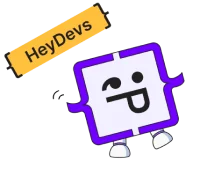
All About Smart Contracts
As a software developer, learning how to program smart contracts in Web3 is a gateway to a world of decentralized applications, blockchain technologies, and disruptive innovations.
In the world of decentralized finance and blockchain technology, smart contracts have emerged as powerful tools that enable trustless and immutable transactions. As a software developer, understanding how to program smart contracts in Web3 opens up exciting opportunities to build decentralized applications (DApps) and contribute to the rapidly evolving blockchain ecosystem. Let’s explore what smart contracts are, the programming languages used to write them, and highlight some valuable use cases where developers can enhance their skills and find new work.
Understanding Smart Contracts
A smart contract is a self-executing program that automatically executes predefined conditions and actions when specific conditions are met. These contracts are deployed on a blockchain, enabling decentralized interactions without the need for intermediaries. Smart contracts are based on the principles of cryptography, ensuring their security and immutability. They are primarily associated with the Ethereum blockchain, but other blockchains like Polkadot, Binance Smart Chain, and Solana also support smart contract functionality.
In other words, smart contracts are a way to use technology to make the old fashioned way of keeping contracts safer, and more reliable. Contract integrity has always been important, but the use of notaries and paper record keeping are far too inefficient for the modern age. Contract authenticity and execution is perfect for blockchain technology, whose decentralized nature allows for large transactions to be executed safely among two parties.
Programming Languages for Smart Contracts
To program smart contracts, developers typically use languages tailored for blockchain development. The most popular programming language for Ethereum smart contracts is Solidity. Solidity is a statically typed language with similarities to JavaScript and supports object-oriented programming principles. It is designed to compile into Ethereum Virtual Machine (EVM) bytecode, which can be executed by the Ethereum network.
In addition to Solidity, other languages like Vyper, Rust, and Cadence are gaining traction for writing smart contracts on different blockchain platforms. These languages offer different features and optimizations, providing developers with a range of options based on their specific needs.
Valuable Use Cases for Smart Contracts
Smart contracts have a broad range of use cases, revolutionizing various industries. Here are a few examples where smart contracts provide value and present excellent opportunities for developers:
Decentralized Finance (DeFi): DeFi applications leverage smart contracts to automate processes like lending, borrowing, decentralized exchanges, and yield farming. Developers can contribute to existing DeFi projects or build their own innovative financial solutions.
Non-Fungible Tokens (NFTs): NFTs have gained significant popularity, enabling unique digital ownership and provable scarcity. Smart contracts power NFT marketplaces, enabling artists, gamers, and creators to tokenize and trade their digital assets. Developers can participate in NFT-related projects, including marketplaces, gaming platforms, and digital collectibles.
Supply Chain Management: Smart contracts offer transparency and traceability, making them ideal for supply chain management. Developers can work on projects that track and authenticate goods, reduce fraud, and enhance supply chain efficiency.
Decentralized Autonomous Organizations (DAOs): DAOs are organizations governed by smart contracts, allowing decentralized decision-making and community involvement. Developers can contribute to building DAO infrastructures, voting mechanisms, and governance frameworks.
Identity and Authentication: Smart contracts can be utilized for secure identity management, eliminating the need for traditional intermediaries. Developers can work on identity verification systems, decentralized login mechanisms, and privacy-enhancing solutions.
Enhancing Skills and Finding New Opportunities
Learning how to program smart contracts in Web3 opens up numerous career opportunities for software developers. By mastering blockchain development, developers can:
Contribute to Open-Source Projects: Participate in open-source projects related to smart contracts and blockchain technologies. Collaborate with experienced developers and gain valuable insights into the ecosystem.
Freelancing and Consulting: Offer smart contract development services as a freelancer or consultant. Many startups, enterprises, and blockchain-focused companies seek developers with expertise in smart contract programming.
Building DApps: Develop decentralized applications using smart contracts as the backbone. Create innovative solutions that leverage blockchain technology and provide unique user experiences.
Research and Development: Engage in research and development activities within the blockchain space. Explore scalability solutions, interoperability, or novel consensus mechanisms.
Conclusion
As a software developer, learning how to program smart contracts in Web3 is a gateway to a world of decentralized applications, blockchain technologies, and disruptive innovations. By understanding the principles of smart contracts, mastering programming languages like Solidity, and exploring valuable use cases, you can enhance your skills and find exciting opportunities. Disregard both the hype and hate that web3 receives. At its core, web3 is a variety of different technologies centered around trustless decentralized systems, and like any new technology, what evolves from that can be both very innovative and garbage.
At the core of any good developer, is trust in the code, the ability for a well constructed project to run properly, and better than it has before. As the market finds which sectors best would benefit from the use of smart contracts (finance, logistics, etc.), those who are trained and educated in these practices will be positioned to get on the ground floor of the next wave of technological evolution and progress.
About HeyDevs
HeyDevs is a revolutionary new platform that empowers developers to take control of their careers, connect with other developers and find job opportunities that align with their goals and interests, without ever needing to apply for a single job! With HeyDevs, companies compete for you, not the other way around.
For developers, HeyDevs offers invaluable resources including our specialized swipe-to-work function, anonymous profile, CV builder, and customizable search criteria, with the ability to connect and chat with prospective employers completely on-site. For businesses, HeyDevs offers tools to maximize the recruitment process, saving time and money, with a talent pipeline that streamlines a majority of the hiring process directly on the platform, eliminating the need for recruiters or headhunters so the hiring process can be handled with HeyDevs as the only medium between employer and candidate, all powered by smart matching to ensure the most relevant matches are provided first. HeyDevs is a truly unbiased hiring platform, delivering a diverse pool of talent that hides information such as avatar, age, and gender, focusing solely on experience and skill, and paving the way for a more inclusive workplace.





